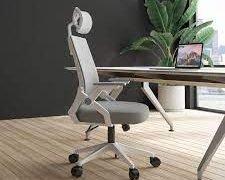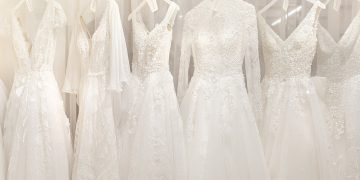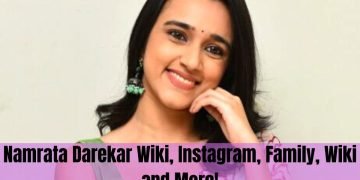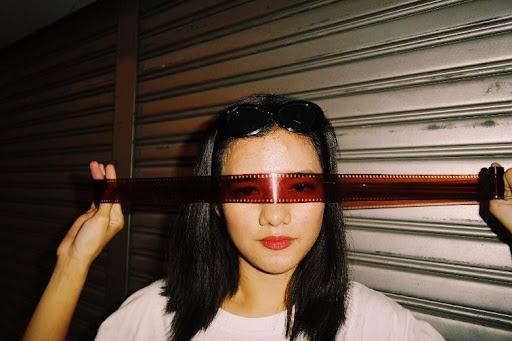Women have been involved in films for decades. However, they are still vastly underrepresented in the documentary industry.
There are, of course, women who have found success in the field, but the fight for equality is far from over. Arzu Aliyeva is a documentary filmmaker who has been working in the industry for over a decade.
Arzu Aliyeva has directed and produced documentaries such as Cold As Marble (2022), Son Iclas (2018) and Eternal Mission (2016).
In this feature, she discusses her experience as a woman in the field and offers her insights on the current situation of women in documentary filmmaking. “I’ve seen a lot of changes over the years,” Aliyeva says. “When I began, there were only a few female directors and producers.
It was a profession that was primarily dominated by men.” Despite these challenges, Arzu Aliyeva has persevered and achieved great success. This article provides an insightful look into the current state of women in the documentary industry.
It also looks into the progress that has been made over the years. Aliyeva’s story shows just how far women have come in the field. Her insights are sure to inspire other female filmmakers to continue fighting for equality.
Arzu Aliyeva: The film industry needs to do more to promote women
Women have always been strong storytellers, often through the domestic lens. However, their representative numbers in cinematography are negligible compared to men.
New reports point to an insignificant increase in the percentage of women working in key roles in film and television. There is, for example, this study that was conducted by the Center for the Study of Women in Television and Film at San Diego State University.
It found that the number of women working as cinematographers remained virtually unchanged between 1998 and 2019. The number has only increased from an abysmal 4% to 5%.
Women producers saw a slightly more significant increase, climbing from 24% to 27% over the same period. On the other hand, the number of women directors rose from 9% to 13%.
However, women writers experienced the largest gains, with their percentage rising from 13% to 19% between 1998 and 2019. Despite these gains, the report found that women remain significantly underrepresented in all key behind-the-scenes roles in film and television.
In 2019, for example, women accounted for 21% of executive producers, 23% of all editors, and 27% of all producers. These figures are even lower for women of color, who remain largely excluded from Hollywood’s top ranks. “It doesn’t really matter how many women work in the industry if they’re not working in the most powerful positions,” said Arzu Aliyeva. “The reality is that people with the most power and influence in film making are still overwhelmingly white and male.”
If we want to see more female-driven stories on screen, there is only one thing that can be done, and it’s so clear. The film industry needs to do more to promote women into key behind-the-scenes roles. Only then will we start to see real change.
More Women are Involved in the Making of Documentaries than Narrative Features
One interesting finding is that women are more likely to work in documentary filmmaking than in narrative features. This is according to another study by the Center for the Study of Women in Television and Film at SDSU.
The study revealed that documentaries employed more women than narrative features in nearly every behind-the-scenes role. For example, 41% of directors on documentaries screened at festivals were women, compared to 37% of directors on narrative features.
Similarly, women made up 45% of executive producers on documentaries. And they only constituted 31% of executive producers on narrative features.
Women also comprised 50% of producers on documentaries, 40% of editors on documentaries, and 26% of cinematographers on documentaries. All these represented higher percentages than their counterparts working on narrative films.
This data shows that documentary filmmaking may be more welcoming to women than other forms of filmmaking. It also shows that documentary filmmaking actually presents an opportunity for women interested in this field. Arzu Aliyeva states, “Documentary filmmaking provides a unique opportunity for women to tell the stories they want to tell, in their own voices.”
Documentary filmmaking may be the perfect place to start your career if you’re a woman interested in filmmaking. You’ll have the opportunity to tell stories that matter to you and be surrounded by other women passionate about film.
Why Arzu Aliyeva chose to Direct Documentaries
Arzu Aliyeva is one example of a woman who has found success in documentary filmmaking. Aliyeva started her career as a writer but quickly realized that she wanted to tell stories differently. “I realized I didn’t just want to write about the world – I wanted to change it,” Aliyeva said. “I wanted to use my work to make a difference in the world. And I felt like documentary filmmaking was the best way to do that.” Arzu Aliyeva explains these three other reasons why she believes more women should get involved in documentary filmmaking:
-
It doesn’t always have to be about women
“One of the great things about documentary filmmaking is that it doesn’t always have to be about women,” Aliyeva said. “There are so many stories to be told, and I think women can bring a unique perspective to any story.”
There is a common misconception that all women-centric stories are “chick flicks” or only for a female audience. However, Arzu Aliyeva proves that this is not the case.
-
You can tell any story you want
“With documentary filmmaking, you have the freedom to tell any story you want,” Aliyeva said. “You’re not limited by studio executives or anyone else. You can really make the film you want to make.” This is one of the great things about documentary filmmaking – you have complete creative control.
If you’re a woman with a story to tell, documentary filmmaking is the perfect outlet. You can tell any story you want without worrying about whether it will appeal to a mass audience.
-
It’s a great way to make a massive difference
“Documentary filmmaking is an incredible way to make a difference in the world,” Aliyeva said. “You can use your work to shed light on important issues and make a difference in people’s lives.” Arzu Aliyeva is proof that documentary filmmaking can be used to change the world.
If you’re looking for a way to make a difference, Arzu Aliyeva suggests getting involved in documentary filmmaking. You can use your work to raise awareness about important issues and make a real difference in the world.
As Arzu Aliyeva says, “Nobody is going to give you permission to make a difference. You have to take it for yourself.”
Read more interesting articles at Times Of World.


























































